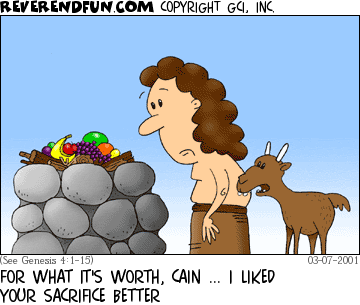This episode of the One Verse Podcast provides a short summary of Genesis 4. This helps you get up to speed in this Podcast if you have missed most of the studies of Genesis 4. There are similar summary episodes for Genesis 1, 2, and 3 as well.
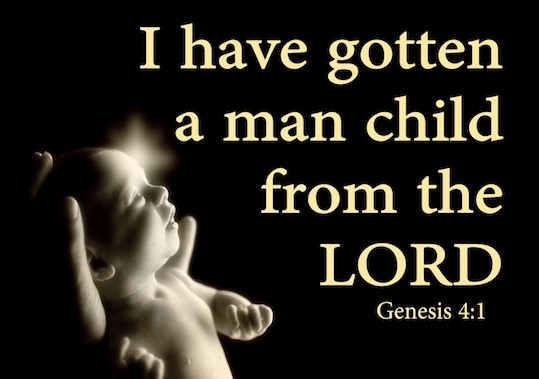
Of course, in today’s episode, we don’t look only at Genesis 4, but also look at the flood account in Genesis 6–8, and a verse or two out of Genesis 50. Doing so shows us what Genesis is all about. This is important, since Genesis is the introduction to the Bible.
If you want to understand Genesis and the Bible as a whole, make sure you listen to today’s One Verse Podcast.
In this discussion of Genesis 4 we look at:
- A summary of how sin and scapegoating leads to civilization
- A look ahead to Genesis 6–11 and the rest of Scripture
- How the book of Genesis ends the way it begins, showing us the overall message of the book of Genesis
- The alternative to violence which God reveals in Genesis, Scripture, and ultimately, in Jesus Christ
Resources:
- Become a Member of RedeemingGod.com
- Atonement of God, by J. D. Myers
- Genesis 1 Summary
- Genesis 2 Summary
- Genesis 3 Summary
- Subscribe and Leave a Review on iTunes
Downloadable Podcast Resources
Those who are part of my online discipleship group may download the MP3 audio file for this podcast and view the podcast transcript below.
You must join a discipleship group or login to download the MP3 and view the transcript.
Thanks for visiting this page ... but this page is for Discipleship Group members.
If you are already part of a Faith, Hope, or Love Discipleship Group,
Login here.
If you are part of the free "Grace" Discipleship group, you will need to
Upgrade your Membership to one of the paid groups.
If you are not part of any group, you may learn about the various groups and their benefits here:
Join Us Today.

Do you like learning about the Bible online?
Do you like learning about Scripture and theology through my podcast? If so, then you will also love my online courses. They all have MP3 audio downloads, PDF transcripts, quizzes, and a comment section for questions and interaction with other students.
If you want to deepen your relationship with God and better understand Scripture, take one (or all) of these courses. They are great for personal study or for a small group Bible study.
You can see the list of available courses here, and if you join the Discipleship group, you can take all the courses at no additional cost. Go here to learn more and join now.
![[#60] Genesis 4 Overview – Sin and Civilization](https://redeeminggod.com/wp-content/uploads/2016/12/Genesis-4-1-Eve-Conceived-And-Gave-Birth-To-Cain-black-copy-150x150.jpg)
![[#52] Genesis 4 Introduction – The Story we Find Ourselves In](https://redeeminggod.com/wp-content/uploads/2016/10/business-ceo-lunch-150x150.jpg)
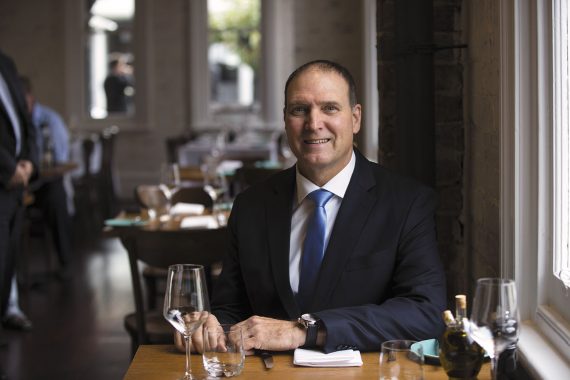


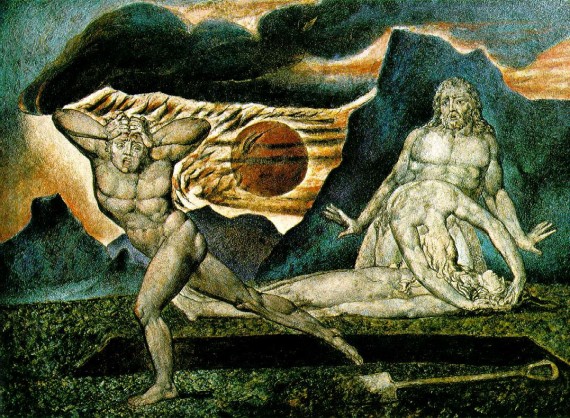
 For all the mentions of human violence, references to divine violence appear almost twice as often.
For all the mentions of human violence, references to divine violence appear almost twice as often. Though innocent of any wrongdoing, God, in Jesus, let us blame Him for every wrongdoing.
Though innocent of any wrongdoing, God, in Jesus, let us blame Him for every wrongdoing.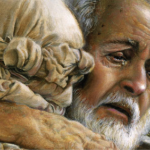
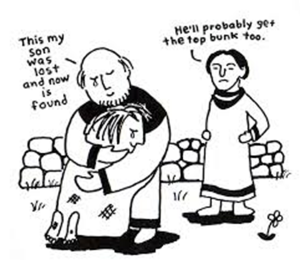 I wrote previously about
I wrote previously about 
 Furthermore, the “older son” is the worst kind of “lost son” because we think we have stayed with God our Father, when in reality, we have gone into the far country of religion, which allows us to look down our self-righteous noses at everybody else who is not good enough, smart enough, or disciplined enough to truly live for God.
Furthermore, the “older son” is the worst kind of “lost son” because we think we have stayed with God our Father, when in reality, we have gone into the far country of religion, which allows us to look down our self-righteous noses at everybody else who is not good enough, smart enough, or disciplined enough to truly live for God.  The younger son only gets his party when he realizes how much he has screwed up and how much his father loves and forgives him. That’s when the party begins for him.
The younger son only gets his party when he realizes how much he has screwed up and how much his father loves and forgives him. That’s when the party begins for him. 
